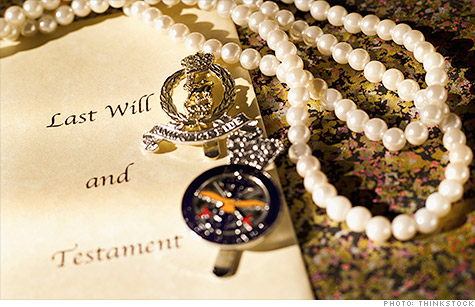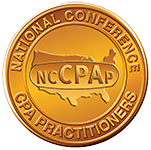NEW YORK (CNNMoney) — The estate tax was here. Then it was gone. Now it’s back. And it’s about to become much bigger next year.
The estate tax is one of the many pieces of the so-called fiscal cliff facing the country at year’s end. That’s when $7 trillion worth of tax hikes and spending cuts are set to take effect unless Congress decides otherwise.
The estate tax is paid by a relatively small number of families who inherit wealth, but it has always played an outsize role in the political debate over taxes.
And it has traveled a torturous path.
Since 2001, the amount of money exempt from the estate tax has been set at six different levels and the top rate has been adjusted nine times, according to the American Bar Association.
Rules also changed — then changed back again — on how to value inherited assets, and on the gift tax.
Those are just a few examples of how Congress kept moving the goal posts.
Tiny but powerful: The estate tax lobby
Estate planning lawyers aren’t optimistic that lawmakers will reform their ways any time soon.
“Oh, no. I’m not at all confident we’ll have something certain going forward,” said Steve Hartnett, associate director of education at the American Academy of Estate Planning Attorneys.
This year, estates under $5 million are exempt from the tax. Amounts above that are taxed up to a top rate of 35%. (See how many Americans have at least $2 million in wealth.)
Next year, barring congressional action, the exemption level falls to $1 million, and the top rate jumps to 55%. There will also be 5% surtax on a portion of very large taxable estates.
That suits some liberals just fine. But Mitt Romney, along with many conservatives, wants to repeal the estate tax altogether. If that doesn’t fly, conservatives would at least like to preserve the current $5 million exemption level at 35%.
President Obama wants to split the difference: an exemption level of $3.5 million and a top rate of 45%. Those were the levels in 2009.
Whichever option lawmakers ultimately choose, the estate tax’s reach would remain narrow.
This year, under the $5 million exemption level, less than 0.2% of those who die — or 3,600 estates — are likely to be affected by the estate tax, according to estimates from the independent Tax Policy Center.
Fiscal cliff: What you need to know
In 2013, if the exemption level falls to $1 million, the Center estimates that just 2% of folks who die that year — or 53,000 estates — would be subject to the estate tax. Combined, the tax on those estates could raise more than $40 billion.
Were Congress to adopt Obama’s proposal, roughly 7,500 estates would be affected in 2013, which would raise roughly $22 billion.
What’s the fuss? A tax on the transfer of wealth at death has been on the books in one form or another since 1797, according to the Joint Committee on Taxation.
Initially, the tax was a way to raise revenue for warfare. But by the early 20th century, it was intended to break up large concentrations of wealth among the very few.
Today, those who support having an estate tax also warn about high concentrations of wealth and about the need to raise revenue at a time of high deficits.
Those who oppose the tax say it hurts family businesses and farms, which may have to sell all or part of their operation just to pay the taxman.
That argument is often countered with findings that very few farms and family-run businesses have to pay an estate tax to begin with — less than 50 in total in 2011, according to Tax Policy Center estimates.
Among those that do, “The data suggest that [they] have enough liquid assets to satisfy estate tax liabilities,” the Joint Committee on Taxation wrote in a 2008 report.
What that data don’t show is how having to pay an estate tax may affect enterprises’ ability to grow.
Then again, if lawmakers would stop changing the estate tax law so frequently, family-run businesses might be able to better plan for the event in a way that won’t impair their prospects for growth.





